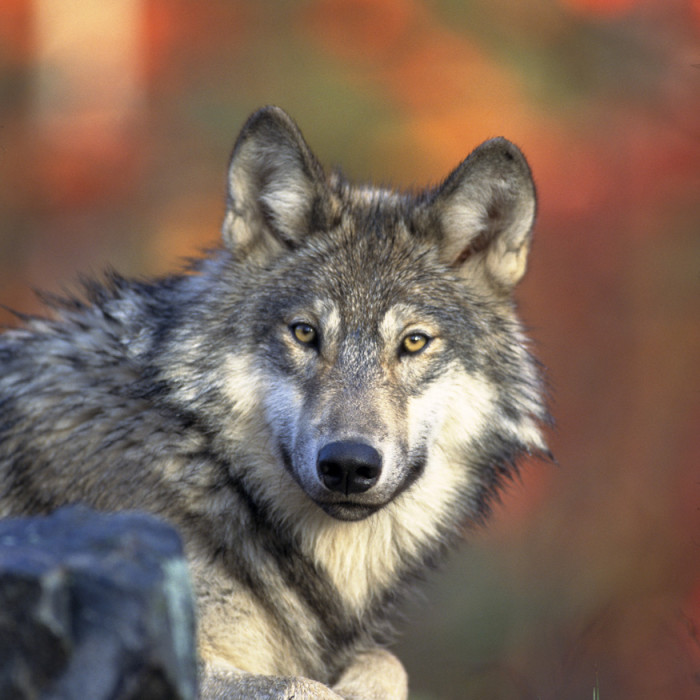
Dogs are more than man's best friend: They may be partners in humans' evolutionary journey, according to a new study.
The study shows that dogs split from gray wolves about 32,000 years ago, and that since then, domestic dogs' brains and digestive organs have evolved in ways very similar to the brains and organs of humans.
The findings suggest a more ancient origin for dog domestication than previously suggested. They also hint that a common environment drove both dog and human evolution for thousands of years.
"As domestication is often associated with large increases in population density and crowded living conditions, these 'unfavorable' environments might be the selective pressure that drove the rewiring of both species," the researchers wrote in their article, published today (May 14) in the journal Nature Communications.
First domestication
It isn't clear precisely when wolves were tamed and transformed into man's best friend, and the date has been hotly debated. An ancient, doglike skull uncovered in the Siberian Mountains suggested that the first dogs were domesticated around 33,000 years ago from gray wolves. But genetic analysis suggested dogs in China were domesticated only about 16,000 years ago.
In any case, most researchers agree that by about 10,000 years ago, dogs were firmly ensconced in human society. [10 Breeds: What Your Dog Says About You]
Sign up for the Live Science daily newsletter now
Get the world’s most fascinating discoveries delivered straight to your inbox.
Some studies show that the wild dogs of South China may have been the first domesticated canines.
To understand this domestication, Guo-dong Wang, a genetics researcher at the Chinese Academy of Sciences, and his colleagues analyzed the DNA of four gray wolves, three indigenous Chinese dogs and a German shepherd, a Belgian Malinois and a Tibetan mastiff.
The DNA suggests that the gray wolves split off from the indigenous dogs about 32,000 years ago, the researchers said.
"Chinese indigenous dogs might represent the missing link in dog domestication," the researchers write in the paper.
Since then, dogs' evolution has been gradual, and there were no sharp decreases in the dog population over time, suggesting dogs gradually became domesticated, after many years of scavenging from humans.
Parallel evolution
The team then compared corresponding genes in dogs and humans. They found both species underwent similar changes in genes responsible for digestion and metabolism, such as genes that code for cholesterol transport. Those changes could be due to a dramatic change in the proportion of animal versus plant-based foods that occurred in both at around the same time, the researchers said.
The team also found co-evolution in several brain processes — for instance, in genes that affect the processing of the brain chemical serotonin. In humans, variations in these genes affect levels of aggression. (This shared genetic trajectory might explain why Fluffy can be helped by antidepressant drugs, the authors hypothesize.)
Follow Tia Ghose on Twitter and Google+. Follow LiveScience @livescience, Facebook & Google+. Original article on LiveScience.com.

Tia is the managing editor and was previously a senior writer for Live Science. Her work has appeared in Scientific American, Wired.com and other outlets. She holds a master's degree in bioengineering from the University of Washington, a graduate certificate in science writing from UC Santa Cruz and a bachelor's degree in mechanical engineering from the University of Texas at Austin. Tia was part of a team at the Milwaukee Journal Sentinel that published the Empty Cradles series on preterm births, which won multiple awards, including the 2012 Casey Medal for Meritorious Journalism.










